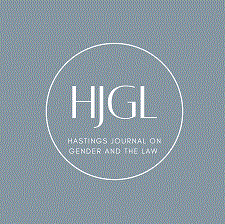
Abstract
Consider a family structure in which both partners are the same sex and thus have to choose certain divisions of labor rather than having traditional notions of gender-based role functioning upon which to rely. Although, theoretically, the choices these two persons make would not necessarily be more egalitarian than the choices made by two persons in a heterosexual relationship, the potential for radical difference is present. How would the negotiation of roles, responsibilities, child-rearing, and wage-earning affect the children raised by these individuals? They would be exposed to different lessons in childhood; the building blocks of their moral development would be distinct from those of their heterosexually-raised peers. How would this distinction affect their sense of justice, morality, fairness, and equality for people in their community? My conclusion is that the non-gendered lesbian family structure provides a model of a non-heterosexist family that supports and extends Okin's analysis of social justice.
Recommended Citation
Deborah M. Henson,
A Lesbian Feminist Critique of Susan Okin's Justice, Gender and the Family: Lesbian Families with Children as a Non-Heterosexist Model for the Development of Morality and Justice ,
4 Hastings Women's L.J. 249
(1993).
Available at: https://repository.uclawsf.edu/hwlj/vol4/iss2/4


